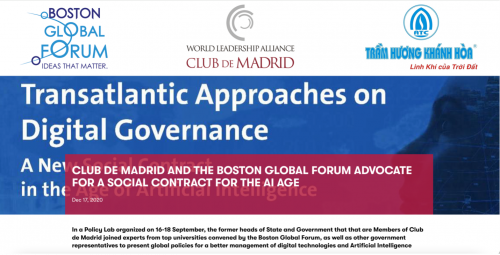Algorithms, including artificial intelligence and machine learning models (AI/ML), increasingly dictate many core aspects of everyday life. Whether applying for a job or a loan, renting an apartment, or seeking insurance coverage, AI-powered statistical models decide who will have access to the foundational drivers of opportunity and equality.
These models present both great promise and great risk. They can minimize human subjectivity and bias, facilitate more consistent outcomes, increase efficiencies, and generate more accurate decisions. Properly conceived and managed, algorithmic, and AI-based systems can be opportunity-expanding. At the same time, a variety of factors—including data limitations, lack of diversity in the technology field, and a long history of systemic inequality in America—mean that algorithmic decisions can perpetuate discrimination against historically underserved groups, such as people of color and women.
In light of the growing adoption of AI/ML, federal regulators—including the Consumer Financial Protection Bureau (CFPB), Federal Trade Commission (FTC), the Department of Housing and Urban Development (HUD), Office of the Comptroller of the Currency (OCC), Board of Governors of the Federal Reserve (Federal Reserve), Federal Deposit Insurance Corporation (FDIC), and National Credit Union Administration (NCUA)—have been evaluating how existing laws, regulations, and guidance should be updated to account for the advent of AI in consumer finance. Earlier this year some of these regulators issued a request for information on financial institutions’ use of AI and machine learning in the areas of fair lending, cybersecurity, risk management, credit decisions, and other areas.
The adoption of responsible AI/ML policies will continue to receive serious attention from regulators. This paper proposes policy and enforcement steps regulators can take to ensure AI/ML is harnessed to advance financial inclusion and fairness. As many other papers have already focused on methods for embracing the benefits of AI, we focus here on providing recommendations to regulators on how to identify and control for the risks in order to build an equitable market.
The article was originally posted at the Brookings Institute.
The Boston Global Forum (BGF), in collaboration with the United Nations Centennial Initiative, released a major work entitled Remaking the World – Toward an Age of Global Enlightenment. More than twenty distinguished leaders, scholars, analysts, and thinkers put forth unprecedented approaches to the challenges before us. These include President of the European Commission Ursula von der Leyen, Governor Michael Dukakis, Father of Internet Vint Cerf, Former Secretary of Defense Ash Carter, Harvard University Professors Joseph Nye and Thomas Patterson, MIT Professors Nazli Choucri and Alex ‘Sandy’ Pentland, and European Parliament Member Eva Kaili. The BGF introduced core concepts shaping pathbreaking international initiatives, notably, the Social Contract for the AI Age, an AI International Accord, the Global Alliance for Digital Governance, the AI World Society (AIWS) Ecosystem, and AIWS City.











